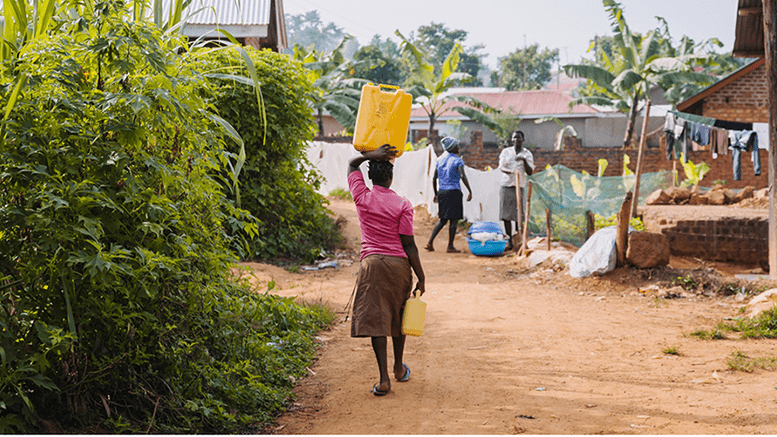Professor Sera Young leads research studying the rates of water insecurity around the world
November 18, 2022

A recent study published by The Lancet Planetary Health outlined a global view of the experience of water insecurity. According to the study, researchers estimate that 436 million of the 3 billion adults represented in a survey sample were water insecure in 2021. The researchers also were able to examine which groups experience the highest rates of water insecurity. While 14% of all the individuals surveyed were water insecure, the most affected regions, such as Cameroon (63.9%) and Ethiopia (45%), experienced much higher rates of water insecurity.
Sera Young, an anthropologist at Northwestern who led the study, drew from the Individual Water Insecurity Experiences (IWISE) Scale — a method created to measure the levels on a global scale.
Young is currently an Associate Professor in the Department of Anthropology at Northwestern’s Weinberg College of Arts and Sciences. Her research primarily focuses on the reduction of maternal and child undernutrition in low-resource settings. To accomplish this, Young has led the development of the Household Water Insecurity Experiences (HWISE) and the Individual Water Insecurity Experiences (IWISE) scales, the first cross-culturally equivalent way of measuring water access and use (hwise.org).
“These data bring a human face to the water sector, thereby revealing life-altering problems with water that have long gone hidden,” Young said. “If we care about human well-being, it is not enough to measure water availability or drinking water infrastructure, which is what we have done for decades.”
Learn more in Northwestern Now’s article, “Study provides first snapshot of global experiences with water insecurity.”

Society & Policy

Joel Mokyr wins Nobel Prize in Economic Sciences
October 13, 2025
Nobel recognizes Mokyr’s theory on sustained economic growth Joel Mokyr, the Robert H. Strotz Professor of Arts and Sciences and professor of economics and history in the Weinberg College of Arts and Sciences at Northwestern University, today (Oct….

Weinberg College faculty and graduate students recognized for excellence in teaching
July 2, 2025
Each year, the Weinberg College of Arts and Sciences and the Office of the Provost recognizes members of the College’s tenure-line and teaching-track faculty for excellence in teaching. Weinberg College in addition recognizes the contributions…

Passion for the planet: A new generation of environmental stewards starts here
May 29, 2025
Over the last two decades, the Weinberg College-housed Program in Environmental Policy and Culture (EPC) at Northwestern has embraced the humanities and social sciences and cultivated a new generation of environmental stewards. Growing up in…

The real beneficiaries of protective labor laws for women
May 20, 2025
During the first half of the 20th century, many states passed labor laws in response to the influx of women into the modern workplace. The so-called protective labor laws enacted by U.S. states restricted women’s…



